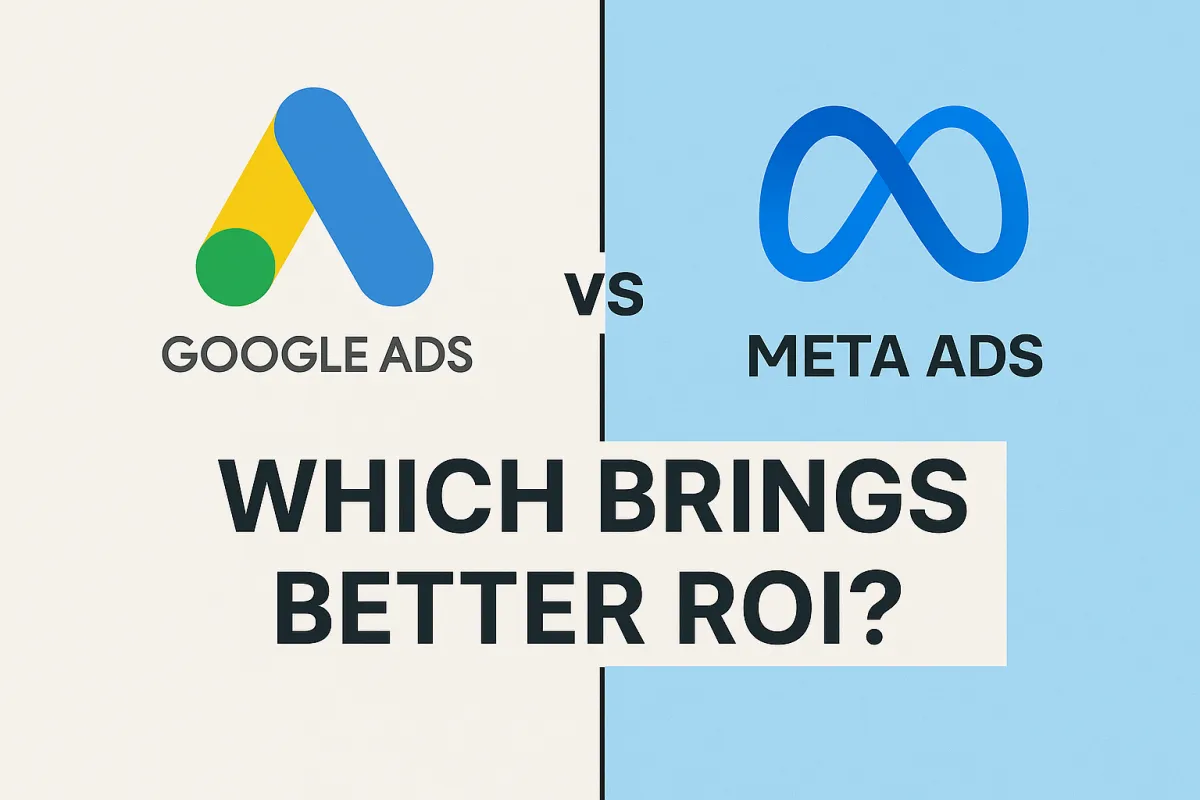
Google Ads vs Meta Ads: Which Brings Better ROI?
“Google Ads captures existing demand, while Meta Ads creates it. The smartest strategy is knowing when to use each.” - Xpertise Agency
Introduction:
When it comes to digital advertising, two platforms dominate the market: Google Ads and Meta Ads (Facebook & Instagram). Both have the power to generate leads, drive sales, and grow your business—but which one delivers a better return on investment (ROI)?
In this blog, we’ll break down the strengths of each platform so you can decide where to put your budget for maximum results.

1. Audience Reach
Google Ads reaches people actively searching for your product or service. These are high-intent users who are ready to take action.
Meta Ads reach people based on demographics, behaviors, and interests—even if they aren’t searching. This makes it powerful for awareness and demand creation.
Verdict: Google Ads wins for intent-driven leads. Meta Ads wins for reach and brand awareness.
2. Cost-Per-Click (CPC) & Cost-Per-Lead (CPL)
Google Ads usually has a higher CPC since you’re bidding against competitors targeting the same keywords.
Meta Ads often has a lower CPC and can generate cheaper leads, but not all leads will be high-quality.
Verdict: Meta Ads can be more cost-effective for volume, while Google Ads is cost-efficient for quality.
3. Targeting Capabilities
Google Ads targets people based on search keywords, location, and audience data.
Meta Ads offers advanced targeting based on age, interests, behaviors, lookalikes, and retargeting.
Verdict: Meta Ads wins in precision audience targeting.
4. Conversion Rates
Google Ads often converts at a higher rate because users already have purchase intent.
Meta Ads may require nurturing—users see your ad before they feel the need to buy.
Verdict: Google Ads usually has a stronger conversion rate
5. ROI Measurement & Analytics
Google Ads integrates with Google Analytics, giving you clear visibility into conversions, cost per action, and ROI.
Meta Ads offers detailed insights on engagement, audience behavior, and assisted conversions, but attribution can sometimes be less accurate.
Verdict: Google Ads provides cleaner ROI tracking, while Meta Ads offers deeper audience insights.
6. Best Use Cases
Google Ads is best for high-intent searches like “dentist near me,” “buy shoes online,” or “emergency plumber.”
Meta Ads is best for creating demand, promoting new products, retargeting website visitors, and building brand communities.
Conclusion
So, which brings better ROI: Google Ads or Meta Ads?
The answer depends on your business goals.
If you want immediate conversions from high-intent users → Google Ads is your best choice.
If you want to build awareness, nurture leads, and scale reach → Meta Ads will deliver more value.
The most successful businesses don’t choose one—they combine both platforms to cover the entire customer journey: awareness, consideration, and conversion.